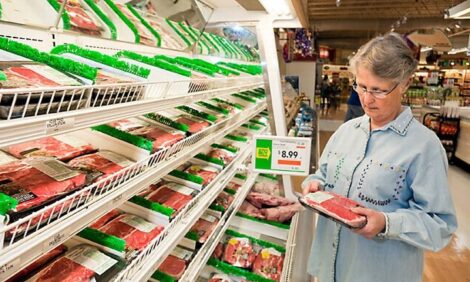



This Week's Pig Industry News
ANALYSIS – Following a review of the current animal welfare legislation, the European Commission has called for a simplified legislative framework and better enforcement. Meanwhile, a survey of Danish pig farmers has revealed that they favoured the concept of unannounced welfare inspections but found the assessments unfair.A new report has identified potential benefits worth around 340 million per annum to the UK meat industry by adopting measures to increase the value of fallen livestock and animal by-products.
The global protein market is in a state of structural change, according to a global strategist with Rabobank’s Food and Agribusiness Research and Advisory Group.
In the EU, the European Commission has reviewed current animal welfare legislation and has called for a simplified EU legislative framework. At the latest Agriculture and Fisheries Council meeting, the Council welcomed the ongoing work by the Commission and supported the need to take a holistic approach in future work on the welfare of animals.
The aim of the strategy for the ‘Protection and Welfare of Animals 2012-2015’ is to simplify animal welfare legislation and ultimately, to facilitate its enforcement.
In addition, the Commission stressed the need to reinforce or make better use of actions which the Commission already performs, including the development of tools to strengthen Member States' compliance with existing legislation, support for international cooperation, the establishment of a level playing field for European producers, and the provision of appropriate information to consumers and the public.
Several Member States have supported the Commission’s considerations over the introduction of a simplified EU legislative framework based on outcome-based animal welfare indicators. At the same time, they stressed that indicators cannot necessarily replace specific resource-based provisions.
Following the European Parliament’s adoption of Written Declaration on animal transportation in March this year, the Council meeting suggested a number of new rules, including those covering internal height, loading densities for different weight categories of pigs and the design of watering and temperature monitoring systems.
Finally, the Council has called on the Commission to strengthen its international strategy on animal welfare in order to increase the value of animal welfare, to limit distortions of competition and to ensure at least equivalence between EU and third-country operators.
Continuing on the theme of welfare, a survey of 12 Danish pig farmers after unannounced welfare inspections has revealed that they favoured the concept but found the assessments unfair.
In other news, a new report has identified potential benefits to the UK meat industry to the tune of around 340 million per annum. The report, prepared for the Royal Agricultural College and entitled A Creative Study Into the Scope for Increasing Value from Fallen Livestock and Animal By-products was presented by Stewart Houston last week. The benefits and value accrue as the result of reduced mortalities as well as better handling, storage and transport of carcasses and improved marketing of the by-products to achieve higher prices.
The global protein market is in a state of structural change. The world is no longer one of structural surpluses, it is a world of structural scarcity, according to David Nelson, a global strategist with Rabobank’s Food and Agribusiness Research and Advisory Group. He was addressing the World Meat Congress in Paris earlier this month.
Finally, turning to news of foot and mouth disease (FMD), new outbreaks have been reported in the last week in eastern Kazhakstan and Botswana (in cattle, sheep and goats).








